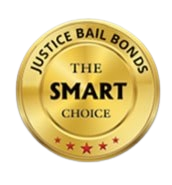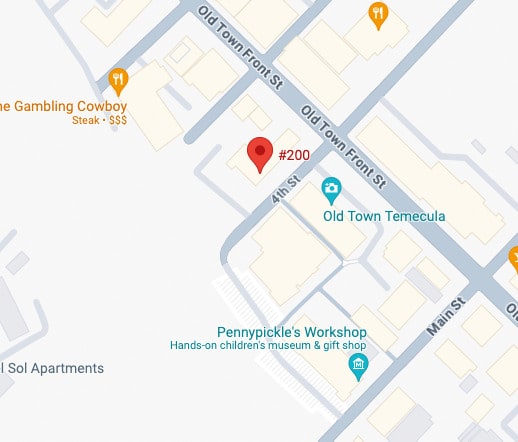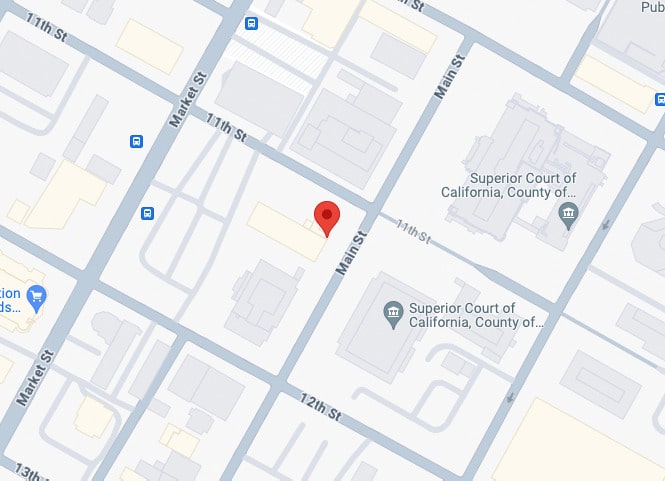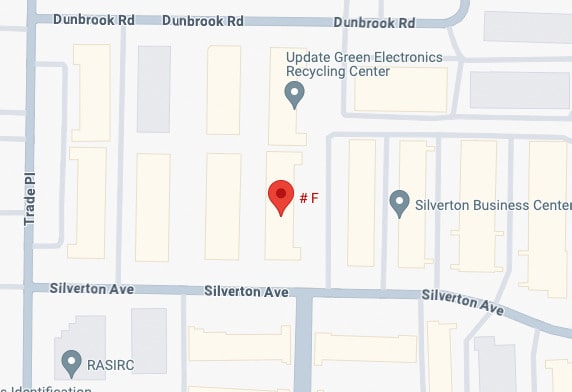Bail is the money you pay to assure the court that you will return for trial and other court proceedings. You post bail before a release on a pending trial for your criminal case. In California, bail amounts are determined by a judge at your arraignment.
Although bail is necessary for most defendants seeking a release before trial, the bail money is not punishment for your offense. Therefore, when the case ends, you can recover the money. The fate of your bail money is determined by your ability to follow through with the bail conditions. Bail money is refunded to the payer when the defendant meets all the requirements, including appearing in court.
The process of recovering bail money varies depending on whether you paid it in cash, through property, or with the help of a bail bond company. Understanding the fate of your bail and familiarizing yourself with the process of bail recovery makes the bail process less complex.
Bail Exoneration
When you post bail for yourself or another person for a release from jail, you expect to receive a refund of the bail money when the case ends. A bail exoneration is the most favorable outcome for your bail money. This means that the payer will receive a refund from the court.
Recovering the bail money requires the defendant to meet the following conditions:
Attend Court Proceedings and Trial
Posting bail assures the court of your return for trial and other proceedings. While out on bail, you will receive notices on court dates you must attend. The court must be satisfied with your appearance before exonerating you.
Follow the Bail Conditions
When granting a bail release, the judge may attach some conditions you must follow while on bail. While most of these conditions will vary depending on the nature of your charges, some common bail conditions include:
- Travel restrictions. While out of jail on bail, you will be prohibited from traveling outside the jurisdiction where the case is pending. The court imposes this condition by requiring you to surrender all your travel documents.
- Avoid committing other offenses. You must avoid committing further criminal acts if released on bail. If you face an arrest while out on bail, you will be cited for bail violation.
- Adhere to the no-contact orders. If you are arrested and charged with an offense that involves causing harm to another person, the court can impose a restraining or no-contact order against you. This helps protect the victims of your crime.
- Avoid drug use. If you are released on bail for a drug crime or other offenses like DUI, the judge will order you to take random drug tests. This is to ensure that you do not use drugs that could fuel further criminal acts.
You must follow these and other conditions that the judge may impose on your release before exoneration of your bail.
The Case Ends
The process of bail exoneration will begin when the court case ends. However, the outcome of your criminal case will not impact your ability to have the bail exonerated. Some of how your case could end include:
-
The Prosecution Drops the Charges
Posting bail is the first thing you do after you are arrested and booked. Sometimes, law enforcement officers will restrain you with suspicions or anonymous tips. Before your case proceeds, the prosecution must gather enough evidence to support a criminal charge. If the prosecution does not have sufficient evidence, they can drop the charges. In this case, you can begin the bail exoneration process.
-
You are Acquitted
Another expected outcome of your criminal case is when it goes to trial, and the court finds you not guilty of the charges.
-
You are Convicted
You can be found guilty if the courts have enough evidence to prove you committed the alleged offenses. You can also be convicted when you plead guilty or do not contest the charges. Since bail is not part of the penalties for your offense, the court will exonerate the bail money even after your conviction.
The process of recovering the bail money after an exoneration will vary depending on the bail you posted.
Recovering Cash Bail
Cash bail is posted by presenting the total amount to the court clerk before release. When the case ends, and all the requirements are met, the person who paid the bail can recover it from the court. However, the court fees will be deducted from this amount.
You can post a cash bail through a cashier's check, personal check, or money order. However, when recovering the money, you must wait up to three weeks for a check from the court.
Recovering a Property Bond
You can present a property bond if you do not have the money for a cash bail but have valuable property. In this case, the property could be real estate, a vehicle, or other valuable items.
When you choose to pay a property bond, the court will put a lien on the property while your case is pending. Since there will be no exchange of money when posting a property bond, the bond is exonerated when the court lifts the lien on the property.
Recovering a Bail Bond
Posting bail bonds is the most affordable and convenient way to ensure a release from jail. You must contact a surety bonds company to post bail and seek financial assistance and guidance. In exchange for a 10% service fee, the bail bond company will pay the full bail amount to the court and ensure the defendant does not spend unnecessary time in jail.
If a defendant is a flight risk or has a history of skipping bail, the surety company may require collateral to secure the bail bond. This ensures that the company does not lose money. If you are released on a bail bond, the bond company can recover its money from the court when you attend all your hearings and the case ends.
After the bail bondsman has collected the money from the court, the company will release the collateral presented to secure your bail bond. The 10% premium you pay to the bail bonds company for their services is non-refundable. Therefore, even after the court has exonerated the bail bond, you should not expect to recover the amount you paid for bail bond services.
Bail Forfeiture
A bail forfeiture is the most undesirable outcome of your bail process. When the court forfeits your bail, the money paid as bail will not be refunded to the payer. The court may forfeit your bail under the following circumstances:
You Skip the Trial and Other Proceedings
When seeking a release on bail, you promise the court to return for all scheduled proceedings, including trial. If you fail to appear for these proceedings, the court will not refund the cash bail, property bond, or bail bond paid to secure your release.
You Violate a No-Contact Order
You must stay away from the protected person and avoid all contact with them if the court issues a no-contact order against you during the bail release. You will risk bail forfeiture if you violate this order.
You Face an Arrest
A common condition for most defendants who secure bail release is to avoid criminal conduct while out on bail. Committing another crime during this time may indicate your disregard for the court orders and could cause you to lose your bail money.
Positive Drug Tests
A failed drug test is a violation of your bail and will prompt a forfeiture of your bail if the court orders you to take random drug tests while out on bail.
The Aftermath of a Bail Forfeiture
When the court forfeits your bail, a bench warrant will be issued to arrest you and take you back to court to face your charges. If you post cash bail, the total amount will be lost. For defendants who post a property bond, a forfeiture means that the court may sell the property used to secure the bond.
The forfeiture is not automatic if you skip bail after posting a bail bond. Instead, the court will send a notice to the surety company informing them of their intention to forfeit the bond. The court then gives the surety company some time to find you and take you back to court.
Bail bondsmen are often busy seeking other clients and posting bail for defendants. Therefore, the surety company will enlist the services of a bounty hunter to find you. Most bounty hunters are retired investigators and law enforcement officers who can track you. A licensed bounty hunter can arrest you and take you back to court.
Bail Forfeiture Hearing
Not all defendants fail to appear in court for trial or violate the bail conditions intentionally. If you have a reasonable explanation for your behavior after the bail release, the bail bonds company can present it to the court to avoid a bail bond forfeiture. Common explanations that the court would accept for failure to appear in court as scheduled include:
Failure to Receive a Notice of the Court Date.
Posting bail allows you to be released from jail while your case is pending. Therefore, even after you go home, the court will schedule hearings and proceedings you must attend. After an arrest, you will give an address where these notices could be sent. A bail forfeiture could be avoided if the surety bonds company proves you did not receive the notice.
However, your explanation will be unacceptable if you receive the notice because you changed your address or gave the wrong address to the court.
Incarceration
Sometimes, you could be arrested while out on bail, hindering you from attending court dates. If the bonds company proves you were incarcerated during your hearing, a forfeiture could be avoided.
Defendants Death
If a defendant dies after posting a bail bond, the bonds company can avoid losing its resources in a forfeiture by proving this fact to the court.
Mental Instability
Under California law, a criminal court case only proceeds when the defendant is mentally stable enough to withstand trial. Therefore, if you can prove that the defendant is mentally unstable, the court can hold on to the bail forfeiture until the defendant receives the right treatment.
Deportation
Surety companies will offer you their financial assistance to post bail even when you are an immigrant in the United States. However, the company could lose money if you are deported after a bail release. The company can protect its interests by requesting a bail forfeiture hearing and proving that you can no longer attend the court hearings.
Sometimes, surety companies with a good relationship with the court do not need to present the full bail amount before your release. However, when the bail bond is forfeited, the surety bonds company must accept the consequences of your actions and pay the total amount.
Bail Bond Reinstatement
When you skip bail or violate the bail conditions set by the court after a release on bail bonds, the court can forfeit the bail bond. If the surety company can successfully avoid losing its money in forfeiture in the bail forfeiture hearing, it could revoke your bail.
When your bail bond is revoked, you will be arrested and detained until your case ends. Having a revoked bail bond can be a significant blow to you and your case. You cannot move on with your life and meet with your legal team to discuss your defense.
You can be released from this predicament by seeking a reinstatement of your bail bond. This involves petitioning the court to revive a revoked bail, allowing you to go home and continue making court appearances.
If you have already identified the reason for your bail forfeiture and bail bond revocation, you can draft a motion for a reinstatement. A bail bond motion contains the following elements:
- The title. The title of your bail bond reinstatement motion indicates how you posted your bail, whether through a cash bail, property bond, or bail bond.
- Case summary. In teh case summary, you will provide a brief history of the conditions the court set for your release. Additionally, you must explain the violation that resulted in a revocation of your bail.
- Prayer for relief. When drafting your motion, you will indicate why you seek reinstatement and how to follow all the set conditions.
- Signature Block. This section completes your bail reinstatement motion. This part formally ends your motion and gives the court your contact details. You will sign the motion and provide your address and contact information.
After drafting your motion for bail reinstatement, you will submit it to the court and pay the filing fee. A judge will review your motion and decide on it. The judge can grant or deny your motion to reinstate bail, depending on the circumstances and strength of your petition.
Your bail will be reinstated if your reasons for skipping bail convince the judge. In this case, you can continue adhering to your bail conditions.
If the judge denies your bail reinstatement motion, your bail bond will still be forfeited. The court retains the bail money you or the bondsman posted. This means that you will remain behind bars until your case ends.
The judge will issue a written order outlining their ruling. This helps you understand the reason behind their decisions and determine the best course of action.
Voluntary Bail Forfeiture
When your criminal case ends with a conviction, you may be sentenced to jail, fines, and probation. If you cause an injury or loss to someone else, you must pay the victim restitution.
A voluntary bail forfeiture occurs when you realize the amount you paid as bail to cover the legal obligations of your case. This means the money will be used to pay the court fines, fees, and restitution, and you can recover the balance. A voluntary bail forfeiture is only possible when you post cash bail.
Find a Reliable Bail Bonds Company Near Me
When you face an arrest and criminal charges in California, the decision to grant you a bail release lies with the judge. Depending on your financial situation, you can post bail in cash, through property bonds, or with the help of a surety company.
Regardless of the outcome of your criminal case, the person who posts bail can recover their money or property from the court when the case ends. However, you must appear for trial and follow all court conditions. Failure to do this could result in the forfeiture of the bail money.
If your bail is forfeited, the court does not refund the bail money, which can be a significant loss to the payer, given the high bail set for defendants by courts in California. You can avoid these losses by enlisting bail bond services and following the instructions of the surety company to ensure the court refunds the bail bond.
At Justice Bail Bonds, we offer fast and affordable bail bonds for our clients in Temecula, CA. Call us at 714-541-1155 for much-needed assistance.










